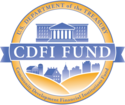Is check fraud still a thing? Why check fraud is still a thing.
If you search when checks started being used, you might find a lot of conflicting results. Some scholars argue that evidence of checks can be dated back as far as the 12th century. So with hundreds of years of using this type of system, you might wonder, “how are check scams even happening”?
Like most scams, it requires minimal effort and depends upon the person’s financial knowledge, gullibility, and desperation for cash.
For this check scam, more than likely, the victim will receive the check by mail. In the envelope, you will receive a check and instructions on how to claim your funds. Here are a few examples of instructions we have seen our membership receive in order to get the promised funds:
- Overpayment – You, for some reason, are receiving a refund from somewhere you can recognize locally. The seemly reputable business has accidentally sent you too much money for your refund, and instead of sending you a correct amount, they will ask that you deposit the check and mail back the overage in the form of a money order.
- Advertising Installment Payment – You will receive a check to do something such as getting your car branded with a company’s logo. The instructions say to deposit the check and transfer it to the company’s local installer to pay them if you are interested in being a part of their marketing plan with the promise of advertising payment each month. Long story short, the fund transfer goes into the scammer’s account, and you are out that cash once the check bounces.
- Winning Money – Winning is so exciting, especially with a short window to claim your money. Whatever you “won”, can only be claimed by first paying taxes, service charges, or some other very legit sounding fees before they send you the big check. Spoiler alert, you won’t ever get that big check.
Not that all unexpected money is a scam, but in most cases, if it sounds too good to be true, it definitely is. And companies will never ask you to send payment to someone, yourself, involve you in advertising without a contract, or ask you to send them payment in the form of money orders/gift cards to receive something from them or pay them back for the overpayment.
Even if you are savvy to the scam, don’t attempt to out scam the scammer. In many cases, even if you deposit the check and do not send funds back, it’s likely that the check will bounce, causing you a fee and a negative mark on your account record.
Always do your research and try to contact the companies name being used (do not use any numbers listed on the possible scam letter). The company will be able to tell you if the payment is legitimate, and if it isn’t, they will be made aware their name is being used to steal from their customers.
If the check you have received is legitimate, the good news is that R1CU offers mobile deposits, making that rare check you receive easy and convenient to post into your account.





